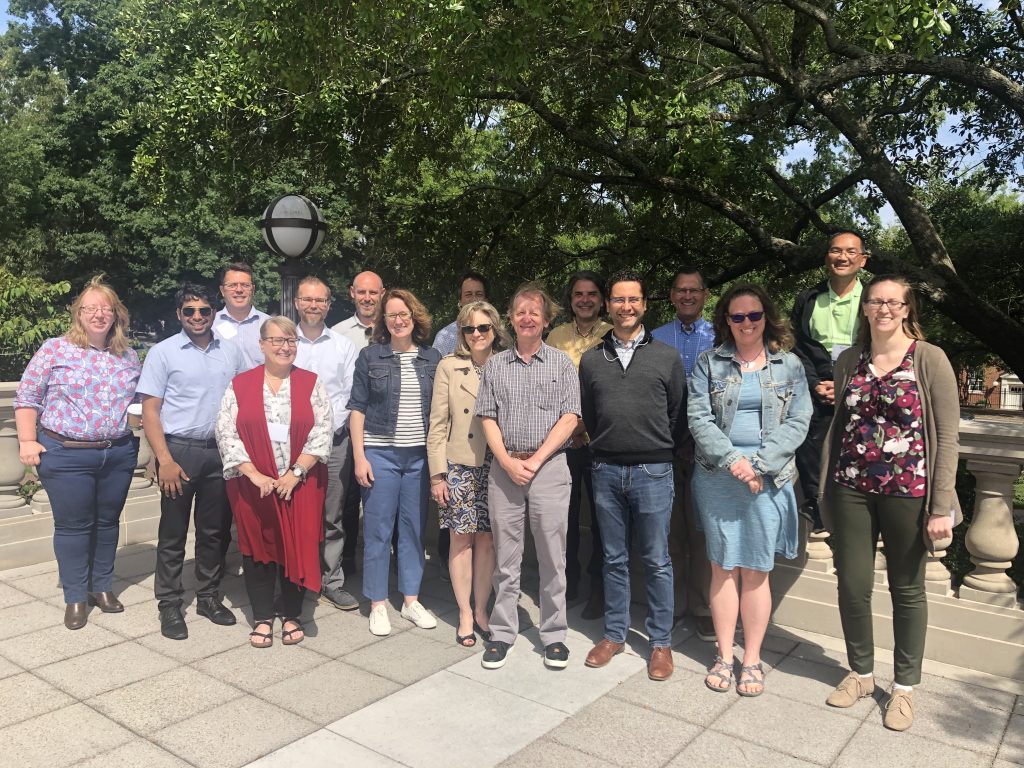
The EMERGE Annual Workshop convened for the second time at UNC-Chapel Hill to unite a community of faculty and staff who are developing and enhancing new engineering programs. Faculty from a broad network of programs gathered to participate in workshops and share best practices to incorporate entrepreneurial-minded learning into curriculum. Workshop topics included searching for unexpected opportunities, developing the culture of engineering programs, and achieving impact through externally partnered projects.
The planning and implementation of the workshop was led by Rich Goldberg from the department of applied physical sciences (APS) at UNC, and Jessica Townsend, Rob Martello, and Scott Hersey from Olin College of Engineering.
Robert Nagel, director and professor of engineering at Carthage College, has been an active member of EMERGE since 2021 and praises the sense of community offered. “Everyone is passionate about where they come from and what they want to develop, establishing a common ground,” he says. “We all want each other to be successful. This fosters a special environment in which we can share, collaborate, and work together.”
Whitney Blackburn-Lynch, assistant professor at Earlham College, agrees on the value of joining a community of like-minded engineering leaders. New to EMERGE, Blackburn-Lynch is currently launching a new engineering program on her campus. “This is a body of people who are invested in student success. It is a network that provides support, answers questions, and shares excitement,” she says. “It is wonderful to be among people who have gone through and understand similar challenges.”
According to Nagel, the EMERGE annual workshop is not a formal training seminar; rather, it is a collaborative opportunity to share resources and implement best practices in engineering education.
“By sharing processes and tools that might not have been considered before, we can help each other walk away with a framework that might help solve problems,” he says. For example, attendees were encouraged to consider the identity of their academic institution and how their program may collaborate with their broader community.
“The ultimate objective is to provide attendees with the applicable resources and framework to think about their own environment, rather than explicitly instructing them how to take action,” he adds.
In addition to the annual workshop in May, monthly virtual meetings are held throughout the academic year. “The meetings provide a supportive environment to celebrate our wins and talk through some failures,” Nagel explains. “Being able to share and learn from failure with a community helps everyone improve.”
By learning from each other’s successes and difficulties, attendees are better equipped to apply findings to their own program and benefit students. “Ultimately, we can take to our students what we learn from each other. EMERGE provides an opportunity to develop the next great generation of engineers moving forward,” Blackburn-Lynch says.
Both Nagel and Blackburn-Lynch emphasize the value of intentional programming efforts and partnership strategies with industry and community partners.
For Blackburn-Lynch, intentionality about culture is specifically applicable as she launches the engineering program at Earlham College. “It’s critical to create a culture that is open about struggles and needs for support. I will now ask myself: ‘What is the culture I want in my engineering program, and how can I ensure that culture is intentionally developed and maintained?’” she explains. “It is helpful and validating to know that other EMERGE attendees share this mentality to establish and assess culture appropriately.”
She further explains how intentionality translates to real-world learning opportunities for her students both within the classroom and beyond. “Rather than manufacturing something that fits in a semester, engineering education should be an iterative process that encourages intentional, real-world problem solving,” she says. “The EMERGE workshop validated intentionality as a teaching and learning strategy; we must be intentional to not merely get students through classes, but for them to truly learn and develop as professional engineers.”
“Hopefully, people will identify small steps to think about moving forward in engineering programming toward new opportunities,” Nagel concludes.
EMERGE (Entrepreneurially Minded Engineering Resource Group for Educators) is a national network of faculty and staff who are starting or have recently started new engineering programs, departments and colleges. The department of applied physical sciences at UNC launched EMERGE in 2020 with support from the Kern Family Foundation.
By Sarah Auerbach, Department of Applied Physical Sciences
